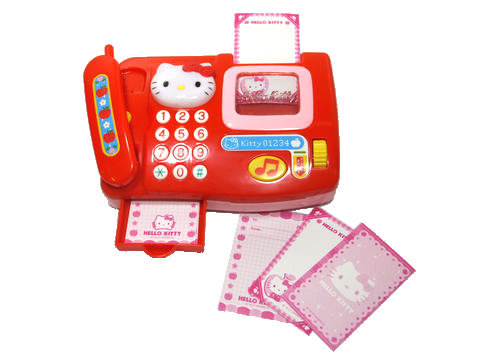Japan Is So Quirky

Can you believe the Japanese still use fax machines—lots of them? How come they haven’t switched to email like the rest of the modernized world? It’s mainly because their language and culture are so unique, according to an amused headline this week in the Washington Post. Those Japanese are so quirky.
We love “Japan is so quirky” stories. This latest, in which the contradictory Japanese live in a super-high-tech society yet still send messages in a laughably old-fashioned form, via fax, leads us to conclude that the Japanese are a mysterious, and entertaining, curiosity. We enjoy these articles because they’re fun (and tweetable). Remember the one about the vending-machine costumes that Japanese people wear to avoid getting mugged?

Except, the ubiquity of fax machines in Japan doesn’t really have much to do with “language and culture.” Nothing about the Japanese language makes typing a fax any different from typing an email, or really that different from typing English in an email. Is Japanese so weird that it has to be written by hand and then faxed? In fact, typing on a computer in Japanese is easier than writing by hand, since you don’t have to remember exactly how to write each character. As the article notes, to its credit, Chinese speakers have embraced web-based communications, and their language if anything ought to be more “quirky” since Chinese has no native alphabet. (Japanese does.)

Throughout modern history, these sorts of ideas about the inscrutable uniqueness of Japan’s language and culture have led to some seriously simplistic stereotypes, and are actually what the Japanese themselves have long used to justify their own racism against foreigners and immigrants.
So wait, but, how come fax machines are still so common in such a high-tech information society? The article glosses over the more concrete reasons for the slow transition to email in Japan—perhaps because they are pretty normal, having to do with political arrangements that give bureaucracies and corporations a conservative grip on businesses and technologies that could otherwise become more democratized, inexpensive, and widespread, such as home internet service. Yeah, I know—yawn.
Hang on, though—could there be something of interest for us in that? Something that would make for a more illuminating article?
Put it this way: I could easily imagine, say, a Scandinavian newspaper publishing a story along these lines: Americans are so quirky and old-fashioned, you wouldn’t believe the way they still love TV so much that they loyally pay far more than they should to cable TV monopolies to provide them with home internet, instead wanting reasonable prices and competition between internet service providers.
Should have kept my fax machine.